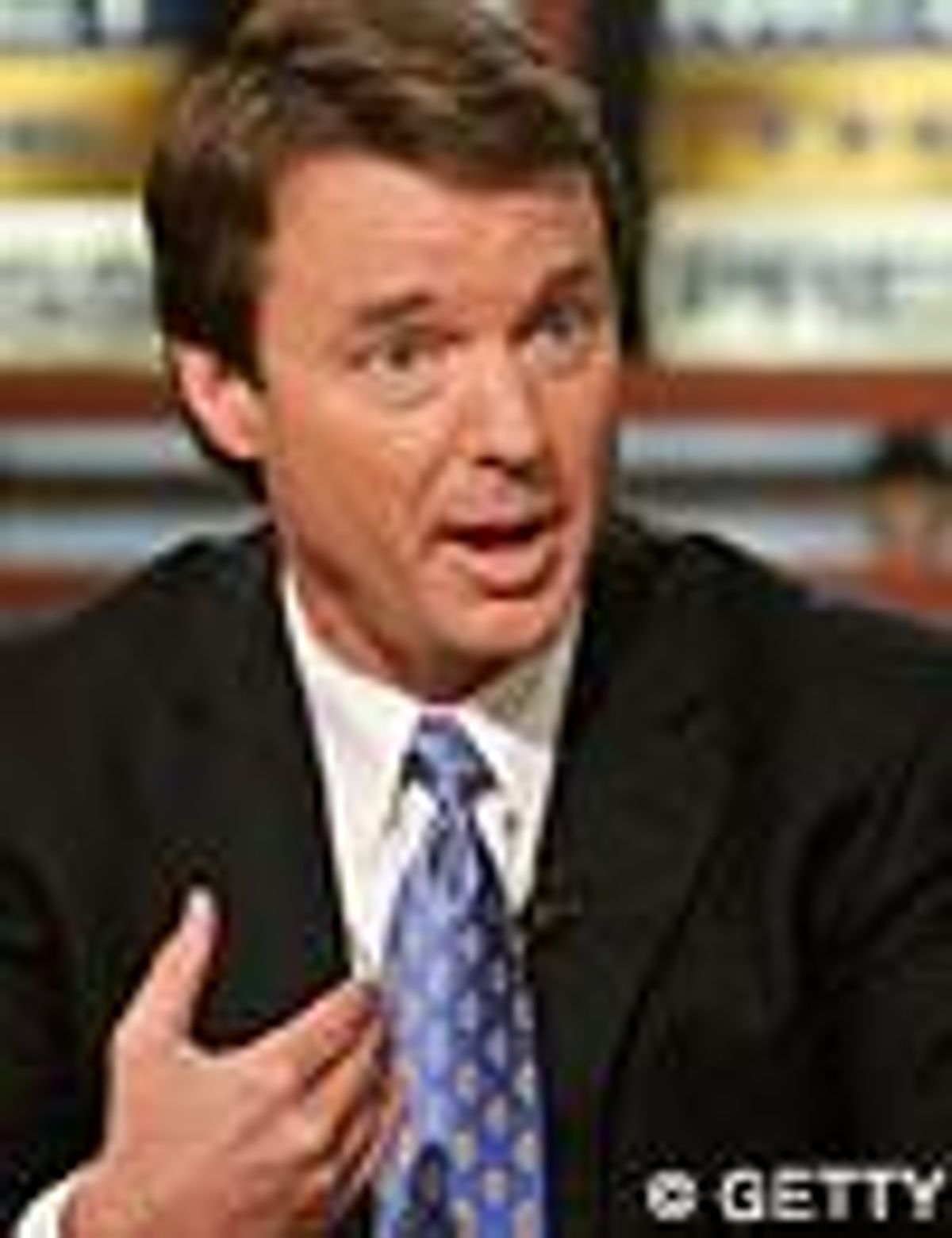All Rights reserved
By continuing to use our site, you agree to our Private Policy and Terms of Use.
Democrat John Edwards left the presidential race Wednesday, ending a scrappy underdog bid that tried to put progressive politics in the spotlight.
The decision came after Edwards lost the four states to hold nominating contests so far to rivals who got more attention from the beginning: Hillary Rodham Clinton and Barack Obama.
The two-time White House candidate made the announcement at an event in New Orleans that had been billed as a speech on poverty. "It's time for me to step aside so that history can blaze its path," he said.
''He just said it was time to get out,'' said Dave ''Mudcat'' Saunders, Edwards's rural affairs adviser. ''I still don't like walking away, but it was John's decision.''
The former North Carolina senator will not immediately endorse either candidate in what is now a two-person race for the Democratic nomination, said one adviser, who spoke on condition of anonymity in advance of the announcement. Clinton said Wednesday that Edwards called to inform her about his decision.
Obama told reporters Edwards had exited the race in a ''classy'' way. ''I think he's run a great campaign,'' said Obama, who aides said spoke with Edwards Tuesday night and asked for his endorsement.
Four in 10 Edwards supporters said their second choice in the race is Clinton, while a quarter prefer Obama, according to an Associated Press-Yahoo poll conducted late this month. Both Clinton and Obama would welcome Edwards' backing and the support of the 56 delegates to the Democratic convention he had collected.
An immediate impact of Edwards's withdrawal will be six additional delegates for Obama, giving him a total of 187, and four more for Clinton, giving her 253. A total of 2,025 delegates are needed to secure the Democratic nomination.
Edwards won 26 delegates in the Iowa, New Hampshire, and South Carolina contests. Under party rules, 10 of those delegates will be automatically dispersed among Obama and Clinton, based on their vote totals in those respective contests. The remaining 16 remain pledged to Edwards, meaning his campaign will have a say in naming them.
Three superdelegates -- mainly party and elected officials who automatically attend the convention and can support whomever they choose -- had already switched from Edwards to Obama before news of Edwards's withdrawal from the race.
Edwards waged a spirited top-tier campaign against the two better-funded rivals, even as he dealt with the stunning blow of his wife's recurring cancer diagnosis. In a news conference last March, the couple announced that the breast cancer that she thought she had beaten had returned, but they would continue the campaign.
Their decision sparked a debate about family duty and public service. But Elizabeth Edwards remained a forceful advocate for her husband, and she was often surrounded at campaign events by well-wishers and emotional survivors cheering her on.
Edwards announced his campaign was ending with his wife and three children at his side. Afterward he planned to work with the Habitat for Humanity housing charity at a New Orleans rebuilding project, the adviser said.
With that, Edwards's campaign will end the way it began 13 months ago -- with the him pitching in to rebuild lives in a city still ravaged by Hurricane Katrina. Edwards embraced New Orleans as a glaring symbol of what he described as a Washington that did not hear the cries of the downtrodden.
Edwards burst out of the starting gate with a flurry of progressive policy ideas -- he was the first to offer a plan for universal health care in one of the few Western countries without it, the first to call on Congress to pull funding for the war, and he led the charge that lobbyists have too much power in Washington and need to be reined in.
The ideas were all bold and new for Edwards personally as well, making him a different candidate than the moderate Southerner who ran in 2004 while still in his first Senate term. But the themes were eventually adopted by other Democratic presidential candidates -- and even a Republican, Mitt Romney, echoed the call for an end to special interest politics in Washington.
Edwards's rise to prominence in politics came amid just one term representing North Carolina in the Senate after a career as a trial attorney that made him millions. He was on Al Gore's short list for vice president in 2000 after serving just two years in office. He ran for president in 2004, and after he lost the nomination to John Kerry, Kerry picked him as a running mate.
Elizabeth Edwards first discovered a lump in her breast in the final days of that losing campaign. Her battle against the disease caused her husband to open up about another tragedy in their lives -- the death of their teenage son Wade in a 1996 car accident. The candidate barely spoke of Wade during his 2004 campaign, but he offered his son's death to answer questions about how he could persevere when his wife could die.
Even as Obama and Clinton collected astonishing amounts of money that dwarfed his fund-raising effort, Edwards maintained a loyal following in the first voting state of Iowa that made him a serious contender. He came in second to Obama in Iowa, an impressive feat of relegating Clinton to third place, before coming in third in the following three contests.
The loss in South Carolina on Saturday was especially hard because it was where he was born and he had won the state in 2004. (AP, with additional reporting by The Advocate)

















































































